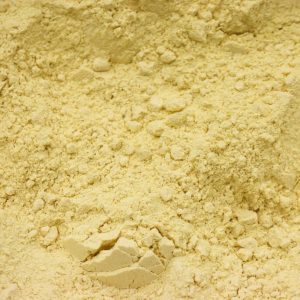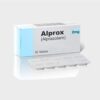Buy APAAN Online (Alpha-Phenylacetoacetonitrile)
£590.00 – £825.00
Buy APAAN (alpha-phenylacetoacetonitrile) for sale Europe, Uk Online Without Prescription. Order APAAN (alpha-phenylacetoacetonitrile) Online.
APAAN (alpha-phenylacetoacetonitrile) is an analytical reference standard with a structural similarity to amphetamine.
-acetylbenzeneacetonitrile
4468-48-8 CAS No.
Synonyms :APAAN ,2-Phenylacetoacetonitrile
Molecular Formula :C10H9NO
Formula Weight :159.2
Purity :≥98%
Formulation :A crystalline solid
λmax :264 nm
Storage :-20°C
Stability :≥ 2 years
Purchase APAAN from a reputable online pharmacy.
APAAN, CAS Registry Number 4468-48-8, is a crystalline powder ranging in color from white to light yellow that is synthesized from benzylcyanide.
What is APAAN (Alpha-Phenylacetoacetonitrile)?
Alpha-Phenylacetoacetonitrile is a chemical with the CAS number 4468-48-8 that the Controlled Substances Act classifies as a schedule I substance (CSA). It is discovered that it is being used in clandestine chemical laboratories to illicitly manufacture a schedule II restricted substance known as phenyl-2-propanone or P2P), methamphetamine, and amphetamine. As a result, the DEA has requested that it be classified as a controlled substance.
Any chemical mixture containing Alpha-Phenylacetoacetonitrile is regulated by the CSA, save in limited circumstances.
What are some Alpha Phenylacetoacetonitrile synonyms?
Additionally, alpha phenylacetoacetonitrile is referred to by the following names:
NSC 11777 NSC 25183 NSC 55206 APAAN 2-Phenylacetoacetonitrile
What are the many types of Alpha Phenylacetoacetonitrile available?
This chemical is accessible in powdered, yellow, brown, or white forms, as well as crystalline forms with a faint straw yellow tint.
How can I purchase Alpha Phenylacetoacetonitrile?
Alpha Phenylacetoacetonitrile is available for purchase through our online store. Our chemical is extremely pure. Not only that, but you will also receive it from us at a significantly lower price than the majority of other vendors on the market. Another compelling incentive to shop at our online store is that we distribute it discreetly and securely to our customers in many places across the world via our trusted courier partners.
What qualities does Alpha Phenylacetoacetonitrile have?
The following are the specific features of this chemical:
Use a table for this part (melting point, boiling point, density, CAS number, purity, and molecular weight, for example).
What applications does Alpha Phenylacetoacetonitrile have?
Alpha Phenylacetoacetonitrile has no authorized usage other than for research and development purposes as well as analytical purposes in laboratories.
Several well-known vendors of this chemical include the following:
The following is a list of suppliers of Alpha Phenylacetoacetonitrile:
Aurum Pharmatech LLC Activate Scientific
Heterocyclics Research Chemicals and Building Blocks MolPort
Chemical research and development by Wolves
AK Scientific, Inc. (AKSCI) Alfa Chemistry Oakwood Products
APIChem Technology Vitas-M Laboratory LabNetwork, a WuXi AppTec Company Chemieliva Pharmaceutical Co., Ltd Hangzhou APIChem Technology Vitas-M Laboratory
How is Alpha Phenylacetoacetonitrile synthesized or prepared?
60 gm of pure sodium with a mass of 2.6 gram atoms is combined with 700cc of absolute alcohol. A sodium ethoxide solution is prepared using this method in a 2-1 round-bottomed flask fitted with a reflux condenser. To this heated solution, 234 g or 2 moles of pure benzyl cyanide and 264 g or 3 moles of dry ethyl acetate are added and properly shaken. The condenser is sealed with a calcium chloride tube. The solution is cooked in a steam bath for two hours and then left overnight. The following morning, you will notice that lumps have formed in the mixture. As a result, a wooden rod is used to stir the liquid, causing the lumps to shatter. Following that, a freezing mixture is used to cool it to a temperature of 10°. The temperature is then maintained at this level for two hours. A 6-in. Büchner funnel is used to collect the sodium salt, which is rinsed four times in the funnel with 250-cc. parts of ether. You’ll discover a colorless filter cake equivalent to 250–275 g. of dry sodium salt, or 69–76% of the predicted amount. Combine the filtrates and add them to the freezing mixture.
At room temperature, dissolve the sodium salt that is still wet with ether in 1.3l of distilled water and then cool the solution to 0°. Precipitate nitrile by gently adding 90cc glacial acetic acid and vigorously shaking. Separate the precipitate using suction filtration and wash it four times in 250 cc water using a funnel. You should now have a moist cake of -Phenylacetoacetonitrile with a weight of 300 g (188-206 g). It is 59–64 percent dry and has a melting point of 87–89°, which is suitable for the majority of applications.
If recrystallization of the crude chemical is desired, dissolve the moist cake in 100cc of boiling methyl alcohol. Filter the solution and chill it to a temperature of 10° by stirring. Suction filter the crystals and wash them once with 40cc of methyl alcohol cooled to 10°. The product weights 173–191 g (54%–60%) when dry and has a melting point of 88.5–89.5°. In a 5-1. flask, combine the filtrates and washings from the sodium salt separation. You can dilute it with ice-cold water up to the point where the flask is completely full. By siphoning, totally remove the lower layer. A significant portion of the ether can be removed via decantation, and the remainder separated using a separatory funnel.
Extract the aqueous layer twice more using 500 cc parts of ether, then discard the ether extracts.
At reduced pressure, you can remove any leftover ether in the aqueous layer by sucking air through the solution for an hour using a suction pump. By adding 60cc of glacial acetic acid, precipitate the -Phenylacetoacetonitrile.
If oil is discarded, immerse the flask in an ice bath until the precipitate crystallizes. Separate the crystals using suction filtration and wash them four times in a funnel filled with 50cc of water. The tan-colored material weighs 50–55g and has a melting point of 83–86° when dried. Then dissolve it in the methyl alcohol mother liquors left over from the previous lot’s crystallization. The resultant solution is then heated in the presence of a trace of Norite. It is filtered and cooled to a temperature of 10°. Collect the crystals created with a filter and wash them with 10cc of cold methyl alcohol, followed by drying. Then a 43–48 gram substance with a pale straw color and a melting point of 87–89° is obtained. It is recrystallized from a solution of 25cc pure methyl alcohol and 10cc cold methyl alcohol. A 37–41 g material with a melting point of 88.5–89.5° is produced. This results in a total material of this purity weighing between 210 and 232 g, or 66–73 percent of the theoretical amount.
What qualities does Alpha Phenylacetoacetonitrile have?
The following are the specific features of this chemical:
Molecular Weight: 159.188 g/mol Exact Mass: 159.068 g/mol CAS: 4468-48-8
99.8% purity
How much does Alpha Phenylacetoacetonitrile cost?
The cost of this chemical varies according to provider. The actual price is determined by the discount granted by an online retailer and the quantity of chemical purchased. We can ensure you that you will find it at the best price on the market at our store. Additionally, we guarantee the product’s quality and expedite delivery to your home.
How is Alpha Phenylacetoacetonitrile classified legally?
Due to the fact that Alpha Phenylacetoacetonitrile is a Schedule I chemical, all transactions involving it, regardless of their amount, are controlled.
Manufacturers of mixtures containing this chemical that do not qualify for automatic exemption must file an application for exemption, as all chemical mixtures including it at any concentration are regulated.
What are the warnings associated with this chemical that you must adhere to?
Certain care must be taken to protect your safety when handling this substance. The following are the warnings and precautions:
If eaten orally, this chemical is extremely hazardous. Therefore, avoid it at all costs.
Because it is dangerous if it comes into contact with your flesh, you must handle them with extreme caution and wear gloves to protect your skin.
You will experience skin irritation and it may even corrode, so avoid close touch.
Because the chemical is known to cause severe irritation and damage to the eyes, it is critical to use protective eyewear that completely covers the eyes, thereby preventing inadvertent contact with the eyes.
It was found to be extremely hazardous when inhaled. Thus, the face must be covered to prevent inadvertent inhalation of the chemical while conducting research, development, or analysis.
The medication is sufficiently powerful to produce respiratory discomfort. Even a single exposure to it can produce toxicity to the target organ. Severe inflammation, particularly in the respiratory tract, is possible.
Purchase APAAN Online | Purchase APAAN For Sale | Purchase APAAN Online | Purchase APAAN Online (USA, CHINA, UK, WORLDWIDE)
| Weight | 10kg, 50kg |
|---|
Be the first to review “Buy APAAN Online (Alpha-Phenylacetoacetonitrile)” Cancel reply
Related products
Psychedelic Drugs
Psychedelic Drugs
Psychedelic Drugs
Psychedelic Drugs
Psychedelic Drugs
Psychedelic Drugs










Reviews
There are no reviews yet.